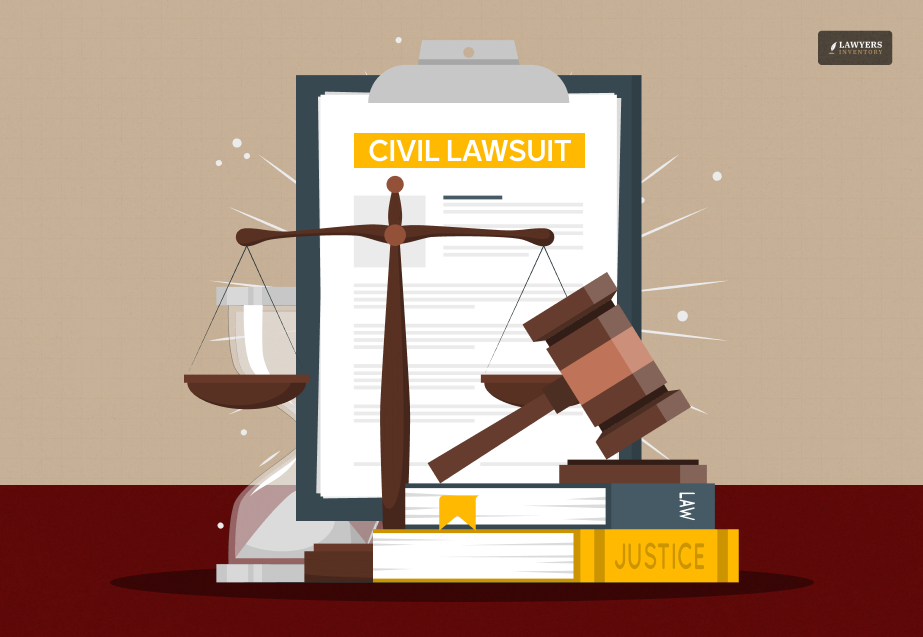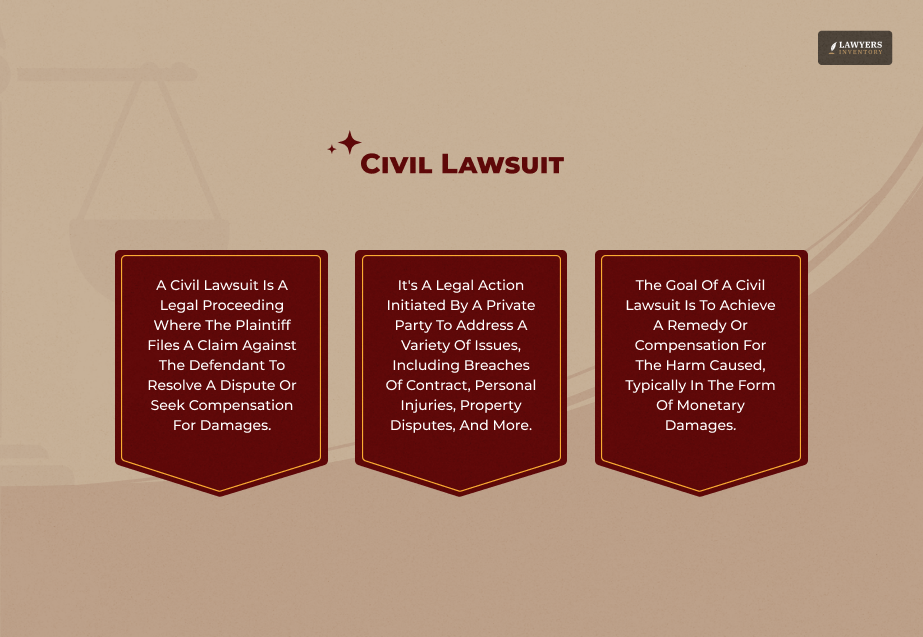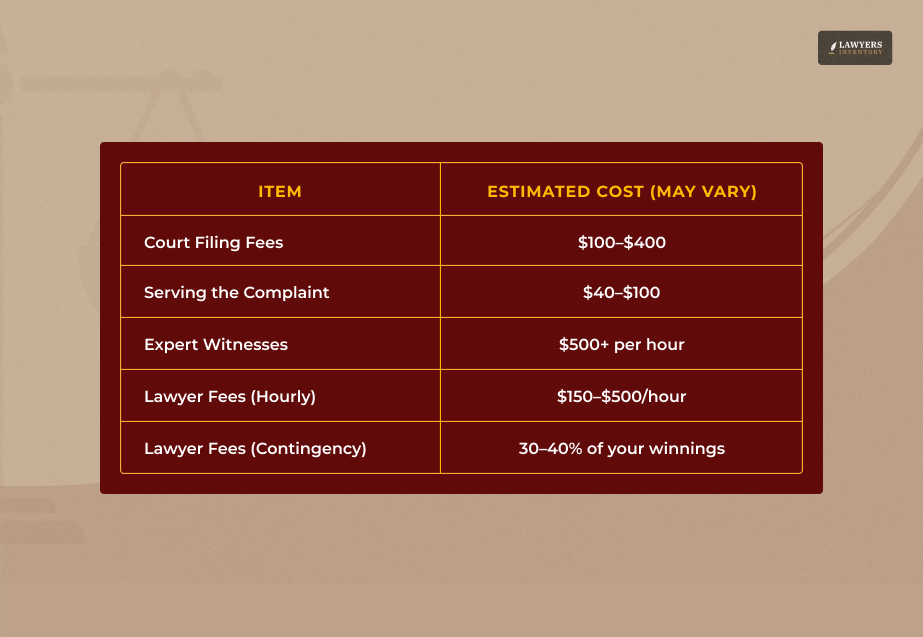
Today’s topic: Civil Lawsuit.
Have you ever felt like someone hurt you or treated you unfairly, and you didn’t know what to do next?
Maybe someone didn’t pay you back money they owed. Maybe they damaged your property or broke a promise that hurt you badly.
In situations like these, you might think about taking legal action. That’s where civil lawsuits come in.
A civil lawsuit is a legal case where one person (or business) sues another for something like money, damage to property, or broken agreements.
It’s not the same as a criminal case, which involves crimes like theft or assault and is usually handled by the police and government.
So, what is it? How is it different? And how can you file one?
Hi. In today’s blog, these are some of the things that I will be talking about. So, if that’s what you want to know, keep on reading till the end and thank me later…
What Is A Civil Lawsuit?

So, what is a civil lawsuit?
Well, for those who are unaware, it is a legal action that you can initiate if you are planning to resolve any kind of dispute. Now, these can be issues between private parties such as institutions, people, or organizations.
Is it because of a crime?
No. And that’s what makes it so different from criminal lawsuits. In criminal cases, the state or an individual prosecutes someone for a crime they have committed.
However, things are a little different in civil cases. In such cases, the issues are mainly related to the following:
- Contract breaches.
- Property disputes.
- Personal injuries.
The major reason for such suits is not to “punish” someone. Rather, it is for getting the compensation that the plaintiff (the victim who filed the case) needs and deserves.
Is A Civil Lawsuit Your “Easiest” Path?
When you try to figure out that you would be essentially filing a civil lawsuit, there are a few things that you have to do. And guess what? Understanding your claim is probably the most important thing.
So, before rushing to court, ask yourself a few simple questions:
1. What happened? Did someone break a promise, hurt you, damage your stuff, or cause you to lose money?
2. Who caused it? Who is responsible for the problem? That person or business is called the defendant.
3. What do you want in return? This is called your damages. You might want:
- Money to fix or replace something
- Someone to stop doing something
- Someone to do what they promised
What About The Statute of Limitations?
The statute of limitations is like a countdown clock. You only have a certain amount of time to file your case. If you wait too long, the clock runs out—and you can’t sue anymore!
Here’s a helpful chart:
| Type of Case | Common Time Limit |
| Personal Injury | 2 years |
| Property Damage | 3 years |
| Breach of Contract | 4–6 years |
Tip: Always check your local laws or ask a lawyer to be sure!
Are There Easier Ways to Solve the Problem?
Sometimes, going to court isn’t the easiest or fastest solution. Here are some options:
| Method | What It Is | When to Use |
| Negotiation | Talk directly to the other person | Simple misunderstandings |
| Mediation | Neutral helper helps both sides talk | Emotional issues or complex problems |
| Arbitration | Like court, but private | Business contracts or faster decisions |
What Are Some Of The Essential Pre-Filing Steps?
Now that you are completely aware of the fact that you definitely want to file a civil lawsuit, you might be
Gather Your Evidence
To win your case, you need proof. Here’s what good evidence looks like:
- Signed contracts
- Emails or text messages
- Receipts or bills
- Photos or videos
- Medical records
- Police reports
- Witness statements
And yes, you MUST store everything safely. I would go to the extent of saying that you should make a folder (online or paper) and organize your documents by date.
| What Is Discoverability: This means the other side can ask to see your evidence—and you can ask for theirs! |
Write a Demand Letter
Before going to court, try writing a demand letter. It’s like giving the other person one last chance to fix the problem.
Here are some of the things that you must include:
- What happened (facts)
- What law or rule was broken (if known)
- A deadline (e.g., “Please respond within 14 days”)
- What you want (money, action)
If the other person ignores it—you’re ready to move forward.
Understand the Costs
“How much does it cost to file a civil lawsuit?
Well, this is definitely something that you should consider. Lawsuits can cost money. Here’s what to expect:

Tip: Some people qualify for fee waivers or can get free legal help (pro bono). Check with your local court or legal aid office.
How To File A Civil Lawsuit?
Now that you are aware of what civil lawsuits are and how they are different from criminal suits, let me now tell you what the steps are in which you can file one. Here’s what you need to do:
Choosing the Right Court
| Court Type | Best For |
| Small Claims | Simple money issues (no lawyers) |
| State Court | Most personal and contract cases |
| Federal Court | Big cases or cases involving other states |
Write the Complaint
The complaint starts your case. It tells the court:
- What happened.
- Who you are (and who you’re suing).
- What law was broken.
- What you want (money, etc.)
Keep it simple and honest!
File the Complaint
- Take it to the courthouse or file online (if allowed)
- Pay the filing fee (or ask for a waiver)
- Get stamped copies for your records
Serve the Defendant
You must officially let the other person know about the lawsuit. This is called service of process.
Now, there are several ways to serve. Some of the most common ways to serve are:
- A process server delivers it.
- Certified mail.
- Someone else hands it over (if allowed).
If you don’t do this right, your case might get thrown out.
What Happens After Filing A Civil Lawsuit?
There are a few things that take place. Some of them are as follows:
1. Defendant Responds: They file an answer or ask to dismiss your case.
2. Discovery: Both sides share evidence.
- Written questions (interrogatories)
- Documents
- Interviews (depositions)
3. Hearings and Motions: Judges make some decisions before trial.
4. Settlement Talks: Most cases end here to avoid a trial.
Now, if you want to ensure that this entire journey is smoother, here’s what you need to do:
- Stay organized with your papers and deadlines.
- Be patient—lawsuits take time.
- Keep realistic expectations.
- Talk and write clearly and respectfully.
- Ask questions when confused—especially court clerks or lawyers.
Should You Hire A Lawyer For A Civil Lawsuit?
This is probably the first thing that comes to your mind. You see, you might think that you do not need a lawyer for the problems that you are facing.
However, here’s how a civil suit lawyer can make things much easier:
- Know all the legal rules.
- Write strong legal documents.
- Speak clearly in court.
- Handle deadlines and stress.
How to find one:
- Ask friends for recommendations
- Search your local bar association
- Use free consultations to ask questions
Can You Represent Yourself?
Yes! This is called Pro Se representation. It might work well if:
- Your case is small (like under $10,000)
- It’s in small claims court
- The facts are simple
But beware! Doing it alone can be stressful. You’ll need to:
- Learn court rules
- File papers correctly
- Talk to the judge yourself
Helpful Resources:
- Court websites
- Self-help centers
- Legal aid groups
What’s the Easiest Choice?
It is normal to be confused about whether you should hire a lawyer or stick to representing the case yourself when it comes to a civil suit. If this is a problem for you, ask yourself:
- Can I afford a lawyer?
- How hard is the case?
- Do I have time to learn everything?
Sometimes, hiring help saves time, stress, and money.
In conclusion, filing a civil lawsuit might seem hard, but it doesn’t have to be.
When you take the time to learn, plan, and ask for help when needed, it becomes a lot easier. Whether you’re doing it alone or with a lawyer, being prepared is your best tool.
Read Also:
- A Guide To Mesothelioma Lawsuit Settlements For Victims And Their Loved Ones
- Camp Lejeune Lawsuit: How is the Government Dealing With the Class Action?
- What is the e.l.f. Beauty Class Action Lawsuit About?











0 Reply
No comments yet.